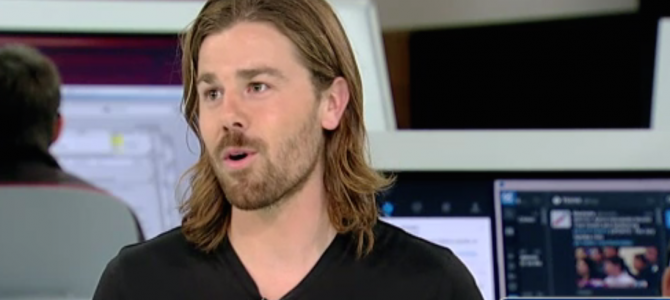
Conservative commentators devote a great deal of energy to quashing disinformation from the Left, but they have an equal responsibility to debunk the ignorance and irresponsible language that characterizes a small but shrill flank of the Right.
Gravity Payments is a Seattle-based credit-card processing company that recently raised its lowest salary to $70,000 per year. Pundits have erroneously accused Dan Price, Gravity Payments’ CEO, of socialistic practices and ideology. Influential radio show host Rush Limbaugh went so far as to call his wage policy “pure, unadulterated socialism.”
But it really should be obvious: Gravity Payments’ wage policy is not socialist. It most certainly does not fall within the bounds of a strict definition. Here’s the definition of socialism from Merriam-Webster: “A way of organizing a society in which major industries are owned and controlled by the government rather than by individual people and companies.”
Here it is again from Dictionary.com:
- A theory or system of social organization that advocates the vesting of the ownership and control of the means of production and distribution, of capital, land, etc., in the community as a whole.
- Procedure or practice in accordance with this theory.
- (in Marxist theory) the stage following capitalism in the transition of a society to communism, characterized by the imperfect implementation of collectivist principles.
Some may be skeptical of dictionary definitions, which don’t thoroughly encompass schools of thought or popularly accepted characterizations. That’s understandable, so here are three reasons why Gravity Payment’s wage policy isn’t socialist.
It’s a Private Enterprise
This is a purely private endeavor by private company participating in a free market, not a legislative effort to apply a policy to the general public. In fact, the first definition actually puts Price directly at odds with the concept of socialism, since he is an individual person running a private company.
Price Doesn’t Think Like a Socialist
By all accounts, Price’s decision to raise his employees’ wages was not driven by Marxist philosophy or any other identifiable socialist philosophy or ideology generally accompanying socialism. In fact, the CEO cited a desire for his employees to be happy as a key reason for raising their salaries, not “from each according to his ability, to each according to his needs,” or “profits are evil, so all our wealth must be distributed equally among the employees.”
Perhaps the most un-socialist aspect of Price’s philosophy is that he actually acknowledges humanity’s natural tendencies toward jealousy and laziness. He admitted that, among other valid criticisms, the decision “cuts against human nature.”
But as he told The New York Times, “I want to fight for the idea that if someone is intelligent, hard-working and does a good job, then they are entitled to live a middle-class lifestyle.” He also told Fox News’ Shepard Smith that “each member of my team deserved it…it wasn’t a handout.” So Price’s driving conviction demonstrates at least a base-level commitment to merit-based pay, whereas self-avowed socialists like Seattle City Council’s Kshama Sawant believe everyone is entitled to a middle-class lifestyle, period.
As someone who has worked for this company and am married to a Gravity employee (Cody Boorman), I can tell you this belief in merit pay permeates all Gravity Payments’ operations. The company has quarterly performance reviews, often accompanied by raises—bigger if the employee is killing it, or smaller if they’ve shown modest improvement. A stagnant performance, at least before $70,000 wage goal was implemented, may well have meant none at all. So some may reach the $70,000 mark well before others based on their performance.
Yes, Price has expressed concern that, “Income inequality has been racing in the wrong direction,” which is a major talking point for socialists, but the crucial difference is that he hasn’t called on the government to step in and equalize the wealth. Instead, he is running his own company according to his own values—profits just don’t happen to be at the top of his list.
Employees Aren’t Paid Equally
A falsehood is piggybacking on social-media shares of various anti-Gravity articles: that everyone at the company is paid the same amount regardless of merit. But Price is not paying everyone the same salary, nor is he disassociating pay from merit.
Although this should be very obvious, it bears repeating: It’s a minimum wage, not a universal, static wage for all Gravity Payments’ employees. This policy doesn’t mean employees are paid the same any more than the federal minimum wage of $7.25 means all Americans are paid the same.
It’s not uncommon for business leaders to set their own minimum wages. Concepts of a “fair wage” vary widely, but most business owners and leaders, no matter how capitalist or conservative, have some idea of what a fair wage should be at their company. At my last job with a startup, our CEO was committed to paying no one less than a modest $10 an hour, including the interns. The value Price places on the work of his team just happens to be much, much higher.
None of this is to say that Price’s “wage that roared” will benefit his company in the long run. There are plenty of non-socialist ideas that just don’t work, and plenty that do. It’s perfectly valid to criticize or praise Price’ controversial decision, but valid criticisms don’t include inaccurate and uninformed accusations that Price is a socialist, or is running his company with socialism.









